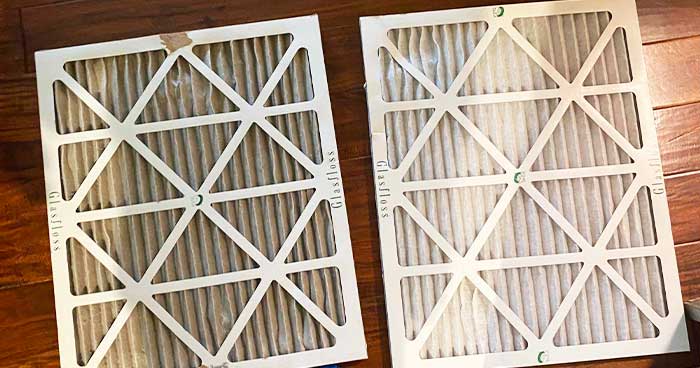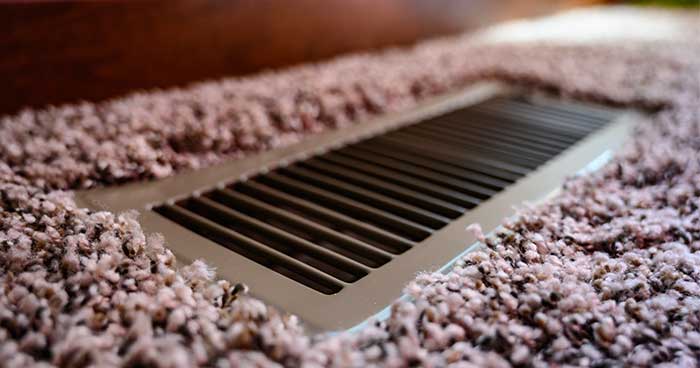Do you ever get a scratchy throat during the summer? For most, they can blame seasonal allergies, but in some cases, an air conditioner can cause a sore throat. At ASI, we see this when San Diego homeowners have skipped an HVAC tune-up or two.
There are more than a few ways air conditioners can cause a sore throat, here are the most common.
Bad AC Installation
When an HVAC system is installed in an improper location, there can be some unintended consequences. Certain environments can cause the system and components to degrade faster.
Another mistake we’ve seen other installers make is choosing a location close to a water line or in an area that sees a lot of excess humidity and water. These locations can foster mold growth. The resulting mold spores can get into your HVAC system, then into the air you breathe.
Leaky Ductwork
Ducts, or ductwork, are a series of flexible metal tubes that distribute temperature treated air throughout your home. With enough time and use, all ducts will show signs of wear and tear.
Even the smallest cracks and fissures can allow dust and other dander to get into the ductwork. This dust bypasses the air filter and in turn is distributed into your home. Which can cause a sore throat.
Lack of AC Maintenance
The air in your home is constantly recycled. A central air system will pull the ambient air from your home, temperature treat it, push it through the air filter, then distribute that treated air back into your home.
Because of this air recycling, routine maintenance is important for the health of your family and your HVAC system. Despite this, we see too many homeowners neglect basic AC maintenance.
One of the biggest reasons your air conditioner can cause a sore throat is because of a dirty air filter.
Any air filter plays 2 very big roles. First, it keeps your HVAC system clean. Dust and other debris can find its way into your HVAC system. These contaminates can block burners, drain lines, and get stuck in your fan. An air filter catches that dust and debris.
Second, air filters trap indoor air contaminates from entering your home’s air supply. Most filters can catch, dust, pet dander, and other allergens. However, some are so strong they can trap viral particles.
All air filters need to be changed at least twice per year. The expert HVAC technicians at ASI recommend changing them once in the spring before AC season and once in the fall before AC season.
During a standard tune-up, an HVAC tech should replace your air filter. You can also provide the tech with your preferred filter, and they’ll change it out for you.
Closed Vent Control
There’s a rumor going around that closing any vents to the outside means your air stays pristine. We’re here to tell you this is actually not a good idea.
We already talked about how any temperature treated air is on a recycled loop. When air is left to cycle again, and again, and again, it can get stale and unhealthy. No matter how strong your air filter is, stale air can be bad news for your health.
It’s important to open the vents or open a window to let in some fresh air. The fresh air will come in, mix with the treated air, and give new life your home’s interior.
Fresh air is necessary for human health. It can clear your lungs, help give you energy, lower blood pressure, and even improve digestion.
Air Conditioners Can Cause a Sore Throat, Here’s What You Can Do
The good news is that there are a few things you can do if you air conditioner is causing a sore throat. Here are some of our favorite tips and tricks:
- Schedule Regular Tune-Ups: At ASI, we recommend two tune-ups per year. One in the spring and then one in the fall. This way your HVAC system gets an important cleaning and look over.
- Routinely Check the Air Filter: An HVAC tech can check your air filter during a tune-up, but if there are some big weather related events, you should monitor it as well. Dust from construction sites or fire season can make your air filter incredibly dirty.
- Keep Yourself Hydrated: Central air conditioners are notorious for removing moisture from the air. That, combined with warm weather, can leave you parched. To combat a sore throat, make sure you’re staying properly hydrated.
- Frequently Dust and Vacuum: There are certain environments that allow for dust. To combat this, dust and vacuum your home at least once every week.
When the Air Conditioner Isn’t to Blame
There are other factors during the summer that can lead to a sore throat. Dust from construction can irritate your throat. The same goes for wayward smoke from any summer fires.











